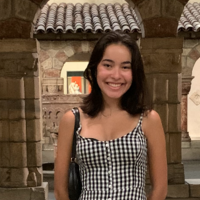The Resurrectionists and the Rise of Racial Medicine
This research project comprises the beginnings of a senior thesis in the history department. This project concerns the selling of cadavers for anatomical dissection, a practice that became common during the rise of anatomy as a necessary piece of a medical education. It was also widely viewed as a social punishment for poverty or marginalization–and effectively acted as one, since most bodies that were stolen for use in medical schools and private theaters came from the graveyards of those most socially marginalized. However, by studying the introduction of grave robbing, as a component of early medical education, to the United States from Britain, and the ways in which grave robbing may have further codified racialized ideas of health and care into the origins of American medicine, deeper roots and processes of radicalized medicine may be studied. This is a story about Philadelphia, the site of the first American medical school, the first epicenter of American medicine and medical theory, and a major site of education that exported graduates and their work across the young country. It is also a story about the medical epicenter and university which inspired the creation of a medical department at Penn; the University of Edinburgh, where many early Penn faculty matriculated. Grave robbing was a key link in the system of medical education, professionalization, and ideological advancement. The Resurrectionists and the Rise of Racial Medicine is an attempt to examine the deeper points of origin and intellectual beginnings of pervasive trends around race that were generated in the 18th and 19th century in medical schools across the early United States by considering its original trans-Atlantic origins.

Comments